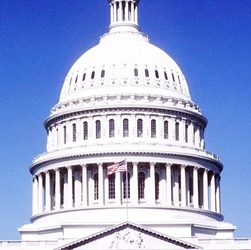 Rep. Mike Fitzpatrick (R-Pa.) has introduced H.R.2987, the PTC Certainty and Phase-Out Act of 2013, which would extend the PTC for six years before being completely phased out.
Rep. Mike Fitzpatrick (R-Pa.) has introduced H.R.2987, the PTC Certainty and Phase-Out Act of 2013, which would extend the PTC for six years before being completely phased out.
According to Fitzpatrick, who introduced the bill into the House before Congress dismissed for the August recess, the bill would provide the business certainty that wind developers and suppliers need.
‘This bill gives wind energy producers a six-year window to make this alternative form of energy work on market-based principles,’ says Fitzpatrick. ‘The phase-out strategy outlined in this bill can be a model for similar tax credits to provide entrepreneurs with a level playing field while giving these companies the opportunity to innovate and plan for success.’
The federal PTC for wind expires at the end of this year. However, a change in the rules, added during the last extension, requires project developers to show that project construction in 2013 must be able to demonstrate ‘significant work of a physical nature’ and show that 5% of their costs have been incurred.
Congress amended the language to allow any project that starts construction in 2013 to qualify for the PTC, rather than require the project to be fully completed. Congress tweaked the rule to allow developers to maximize the tax incentive.
In the release, Fitzpatrick notes the last-minute approach to the previous PTC extension has resulted in thousands of layoffs. Langhorne, Pa.-based turbine maker Gamesa, which is part of Fitzpatrick's Bucks County district, has been particularly hit hard by PTC uncertainty.
‘This boom-bust cycle has kept the industry in a state of perpetual uncertainty,’ says David Flitterman, Gamesa's North American chairman, adding that with stable policy, manufacturers are able invest in research and development that can drive down the cost of energy.Â
‘Under Fitzpatrick's bill, that downward trend would continue, enabling the industry to reach grid parity by the time the PTC phases out,’ says Flitterman. ‘His legislation provides the certainty manufacturers need to make these long-term investments.’
Given the full docket facing legislators this fall, such as debt ceiling and tax reform negotiations, the long-term prospects are unclear for the stand-alone bill in a divided Congress.
In a statement, the American Wind Energy Association says Fitzpatrick's legislation, if part of a comprehensive tax reform bill, ‘could provide the wind industry with much needed predictability and allow for longer term planning and investment into future U.S. projects.’



